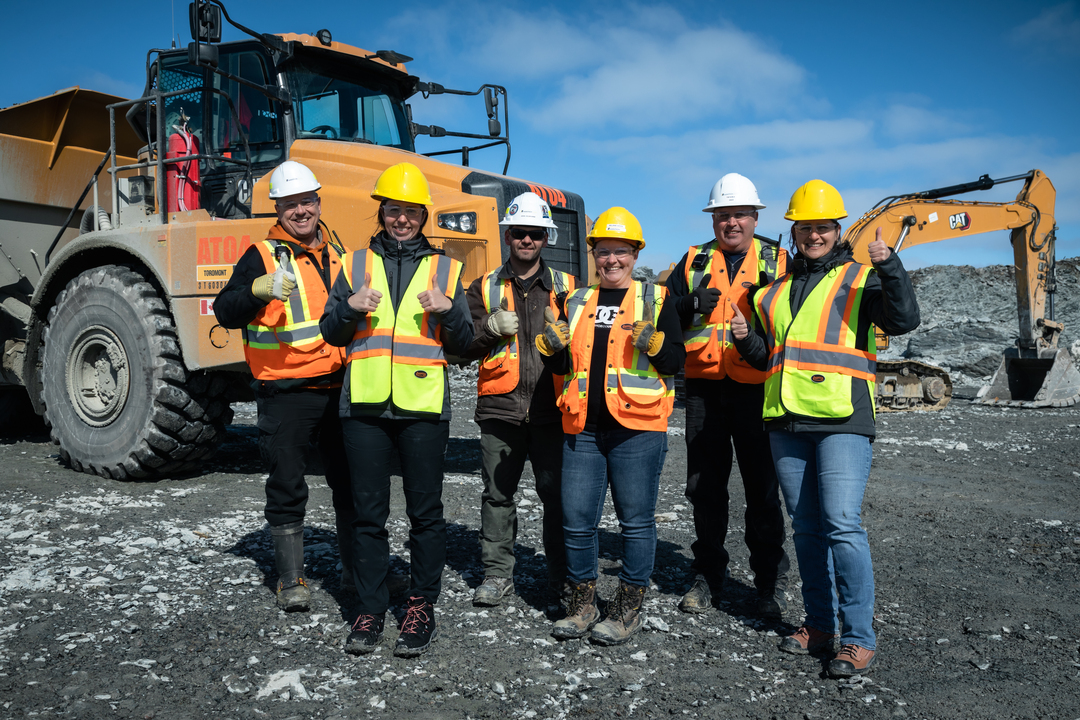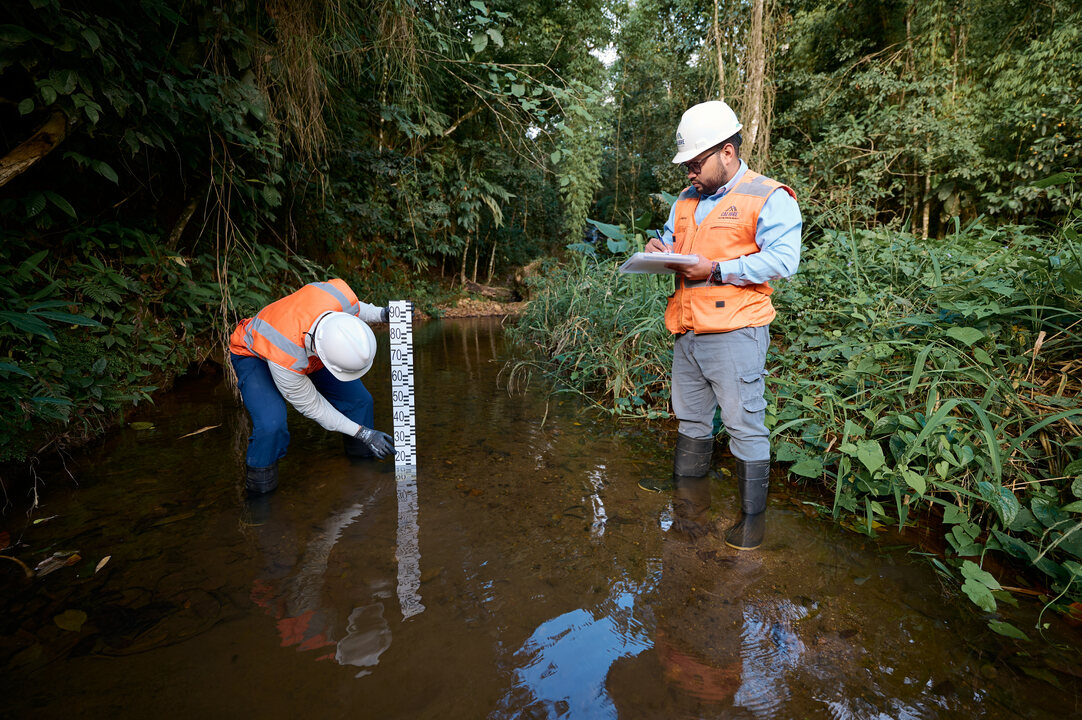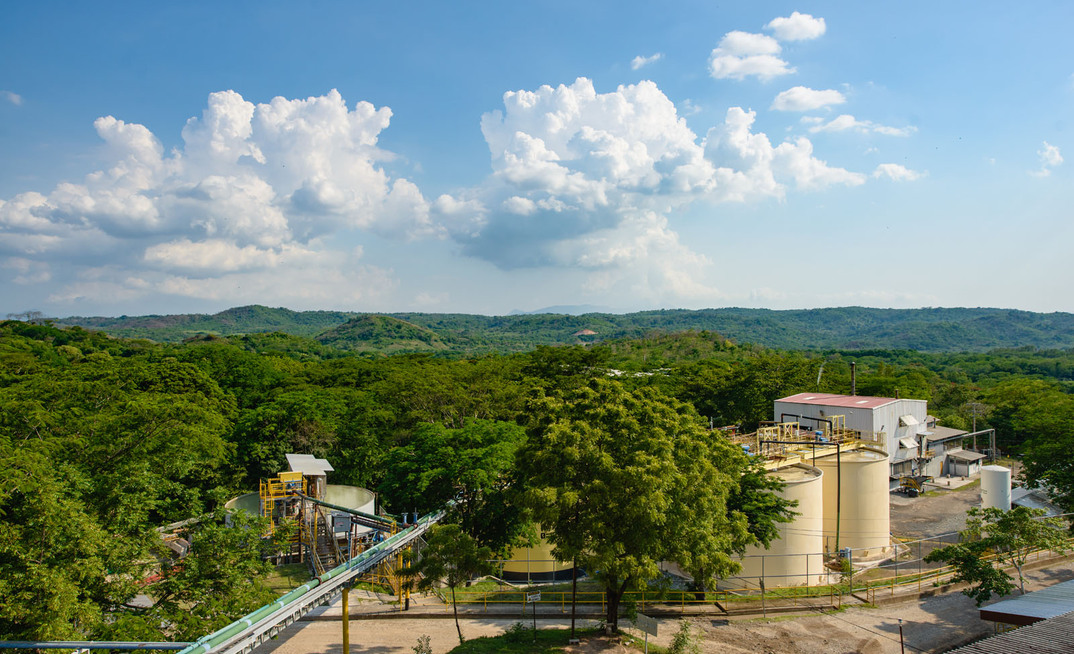Canadian-listed mid-tier gold producer, Calibre Mining, is leading from the front in ensuring that sustainability informs every stage of the mining cycle. It is an approach that translates to sustainable value for all the company's stakeholders and affords it a discernible edge over its peers.
An agent of change
The Americas-focused mining company has a robust pipeline of gold exploration and development opportunities in Newfoundland & Labrador in Canada, Nevada and Washington in the US, and Nicaragua.
Yet, regardless of the jurisdiction, the company adopts a responsible and sustainable approach to mining marked by adherence to – or the exceeding of – ever more exacting compliance criteria. At every turn, Calibre seeks to apply customised local solutions that at the same time advance the dialogue around how best to tackle critical global concerns, such as those related to biodiversity, climate change and deforestation.
Calibre endeavours to ensure that the work it undertakes in its capacity as an agent of change reverberates not just across the company, but across the whole mining industry.
In practice, the company's take on sustainable mining is informed by its three strategic pillars, the first of which is ‘Responsible Practices' which seeks to ensure a culture of best practices internally and with partners. Calibre's second pillar, ‘Contributions to Sustainability', has the objective of generating positive effects beyond mining, while its third strategic pillar of ‘Global Challenges' has it seeking to connect with efforts to safeguard the future.

Common strategy, local content
Calibre uses this strategic trinity as a guiding light to inform its contributions to the sustainability of the host communities in which it is active.
For example, in its provision of employment opportunities company-wide, Calibre prioritises local labour, evident in Nicaragua where 96% of its workers are national employees, and 77% hail directly from neighbouring communities.
Such a regional socio-economic boost would be welcomed anywhere in the world, but senior vice-president, sustainability, Petri Salopera, who oversees such matters, knows that the most effective, impactful and sustainable solutions are those that are jurisdiction- or even site-specific and the product of a dialogue between local stakeholders and Calibre.
An example of this codevelopment approach can be found in Nicaragua in the form of Calibre's potable drinking water programmes, the planning, execution and evaluation of which is a partnership between mining company and host community. Also in Nicaragua, the company has planted more than a million trees.
Calibre also seeks to integrate a robust health and safety culture informed by enhanced training and education with cutting edge technologies in its work processes to reduce risks in relation to health, safety and the environment. Informed by this, trucks have been equipped with technology as standard that allows risks such as driver fatigue to be monitored and managed.
With its new Canadian asset, Calibre is active in a jurisdiction marked by the highest environmental, social and governance (ESG) standards, and this is something that excites Salopera. But here, as with its existing portfolio across Nicaragua and the United States, the same principle holds true – that of acting locally and connecting those actions with global challenges.

Cross-fertilisation for optimum sustainability outcomes
Calibre proactively contributes to enhancing the mining industry's sustainability credentials.
As well as being part of the World Gold Council and an adherent of its Responsible Gold Mining Principles, the company also became a member of the Mining Association of Canada (MAC) in 2023.
As a Canadian-listed company and now near-term producer in the country, following its acquisition of the Valentine Gold Mine, this constituted a logical next step for Calibre, and will see it actively participate in and uphold MAC's Toward Sustainable Mining (TSM) performance system.
This globally recognised framework has been designed to drive performance and accountability in key areas, including environmental and social responsibility. For Salopera, it is a welcome opportunity to "strengthen our sustainability performance by measuring against industry best practices, but also to bring our own experiences to the table and share them with other members".
Such a collaborative approach to best practice moves sustainability considerations beyond mere alignment with local requirements to a connection with international standards and evolving expectations. The result of this is that complacency is avoided, and optimum conditions are created for Calibre to continuously challenge itself in pursuit of ever better ESG outcomes.
Moving through the phases
The company is currently mid-way through implementing its Sustainability Strategy, which is marked by three distinct phases.
The first of these, ‘Setting the Stage' in 2022, saw alignment and standardisation of its ESG practices across all operations, to reinforce Calibre's positive impacts on the economy, environment, and people.
It was followed in 2023 by the second phase, known as ‘Meeting Higher Standards', which runs to 2025 and is leading to best practices being implemented and operational processes optimised.
Thereafter, the final phase, ‘Leading the Way', kicks off in 2026. This is set to position the company as a front-runner in sustainability among its peers.

Alignment comes from engagement.
In relation to sustainable development, Calibre's capacity to make a difference is profound, regardless of the country in which it is operating. This is underpinned always by engagement with local communities, to make sure the two parties' objectives are in alignment.
Those companies that prioritise such engagement and the importance of ongoing investment in their social licence to operate are likely to benefit from a more predictable relationship with those host communities. In turn, a well-served and involved community whose wishes are not simply listened to, but acted upon, is unlikely to seek satisfaction from authorities with the power to thwart progress at a mine – effectively at will. And without needing to assuage the concerns of voters who support them, those same authorities, of whatever political stripe, represent a far more predictable force for investors to weigh up, should the company they are contemplating backing hold community engagement in high esteem.
Uber-diligence translates to value
Salopera and the company he represents subscribe to the view that mining can be a responsible and sustainable partner to the environment and local communities, helping to transform lives and livelihoods for the better.
Calibre has acknowledged that incorporating sustainability into its business strategy is essential to its long-term success, hence an increasing focus on sustainability practices and robust ESG performance, as recorded in its comprehensive Sustainability Report. And, this positioning of sustainability at the heart of its business model is working to ensure its accomplishments are achieved in ways that are ethical, transparent, accountable, and respectful of the rights of others.
Combined with its strong balance sheet, proven management team, strong operating cash flow, accretive development projects and district-scale exploration opportunities, Calibre's responsible and disciplined approach to operations – perhaps best embodied in its advanced tailings management practices – is set to unlock significant value for all stakeholders.

























